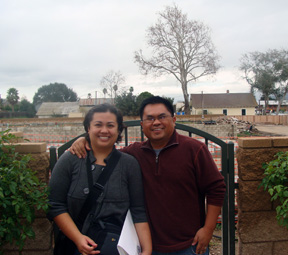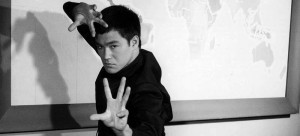One of the people I have come to admire since I became active in social media is Eric Stoller, a higher education consultant/blogger. He is passionate in his beliefs and is willing to express them. I had the pleasure of meeting him “in real life” at NASPATech in Rhode Island last November. Eric wrote a piece today entitled “Where are the radical practitioners? “ for InsideHighered.com and he specifically asks if radical practitioners exist in student affairs. As usual, like his other ones, this article made me think about my roles and value in student affairs. I honestly had to look up what “radical” meant as the first thoughts in my mind were “extremists”, “going against the status quo”, “revolutionary”. Two definitions on dictionary.com are “favoring drastic political, economic, or social reforms” and “thoroughgoing or extreme, especially as regards change from accepted or traditional forms”. If I’m not radical, does that mean I conform to status quo? Is this a bad thing? After thinking about what I’ve been involved with since I came to UCSB as a student and now as a career staff, I realized there is a part of me that has the tendency to challenge status quo. As a student, I was one of the hundreds of persistent students who asked the UCSB administration to provide a physical space for Asian American students on campus. As a staff, I either led or was a member of many project teams that introduced technical solutions to student affairs departments. I work in the IT field within student affairs and most of what I’ve developed or led could be considered innovations within the context of my institution. I have had my shares of eyes rolling or smirk as I presented my projects, or telling me I was doing things the wrong way. But I don’t think I can call myself a “radical”, I think I’d rather call myself as “change agent”.
While I am a very amiable and agreeable person, if I’m told I can’t do something because of some reason I would deem unreasonable, chances are that I will probably do what I’m not told to do. A case in point, I was told that I should never go on twitter because there’s nothing positive about it, that it just poses security risks. I had to find out for myself and more than a year later, I’m glad I did!
A month ago, I was having a conversation with a colleague who commented that “some people are willing to move forward without asking permissions” and there are those that need permissions. My colleague believes I’m one of those that do need permissions. He’s right and I think in some way, that defines who I am. I like harmony in the workplace and I like collaboration. I don’t like spending my energy on solving negativity when they could have been avoided. I’d rather work within the boundaries of the system and slowly stretch it from time to time, all keeping in mind security and confidentiality policies as my guides. Maybe because it’s just my personality, my family upbringing or maybe part of my Filipino culture? I’m not sure. Does that mean that I will roll over at someone’s command? In the past, maybe I did. Now? No. I’m definitely more assertive now and I’m not afraid to state my opinions on matters I don’t agree with or I strongly believe in.
Moving up the management ladder and observing my mentors, there are few observations and philosophies I have learned which I use as a “change agent”. These include:
- I can change the culture of my organization in many ways. One way is to build the next generation leaders. Culture is dynamic, always changing and an effective way to influence the change is by building leaders that carry the same value systems I do. I can’t change the entire organization by myself, but I can with the help of those that believe in the same way I do. I’m not a person who makes public speeches to evoke passions from those around me, but what I do is build relationships, create opportunities for others so they may have the chance to explore what they are passionate about. I believe in the power of teams, collective intelligence, collaboration and communities. These are the values I hope I convey with my teammates and I am asking those I can influence to carry forward.
- I don’t need to get everyone’s permissions, just the ones I need to ask. I do ask permissions, including my boss and first and foremost, the head of my organization, Vice Chancellor Dr. Michael Young, who is also my mentor. For example, there are oppositions with the use of social media and mobile technologies by some folks in our division, but as long as I have my boss and Vice Chancellor Young’s permissions, I’m good to go. Vice Chancellor Young told me years ago “I’d rather have us moving forward and make mistakes along the way than stagnate”. He also told me to check in with him from time to time to make sure we are still on the right track, which I do. Does this mean I discount my other colleagues’ opinions? Not at all because I need their support to accomplish tasks, but knowing I have the support of my superiors matter a lot.
- Patience is a virtue. Yes, I can be impatient at times which have caused me to take alternate routes to completing projects outside “best practices” but in general, I’ve learned that patience does count. The university is a place of bureaucracy and it’s easy to get impatient, but I also know that there are a lot of folks that are overworked. In promoting ideas such as mobile and social media, I had to realize that I am months ahead of most people just because I have spent time researching them. In getting my team’s buy-in, I have to be patient explaining where I am coming from and the direction we are heading.
- Relationships matter. I value my relationships with my colleagues and while we may disagree on what projects to take on and in the manner to accomplish them, I like working in an office that do get along. For many of us, we will spend years of our lifetime with our co-workers so why would we not try to get along with them? A big part of my success comes from the fact that I know a lot of people on campus, not because of my current position, but from more than a decade of my involvement beyond my formal job description. I choose my battles, I stay humble, I admit when I am wrong, I help when I can. I know that I will need other people’s help at some point.
- Change starts with me. When I was promoted to my current position, one of the first projects I wanted to do is to have a wiki to share information amongst our staff. As part of the wiki, I suggested that we should create a profile page for ourselves to include non-professional information like hobbies, etc. I mentioned this to a couple of people and the response I received was that no one will do it. I created the first profile page as an example which was followed by several members of our staff doing the same. The wiki and the profile pages were my first steps towards building a community and not just co-workers.
I really do appreciate Eric’s passion to challenge student affairs status quo. Our profession needs someone like him. In our own ways, we are helping our profession change in our unique ways. Do you consider yourself as a “radical” or “change agent”?


